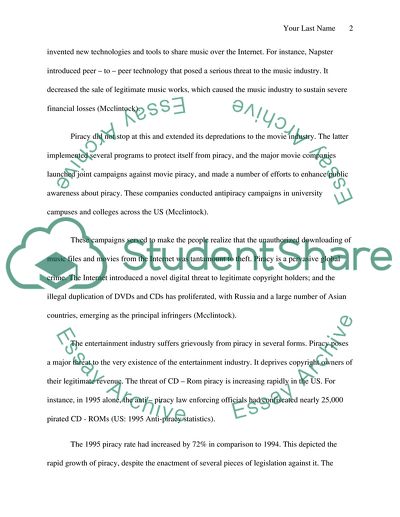Cite this document
(“Internet Piracy Essay Example | Topics and Well Written Essays - 1500 words - 1”, n.d.)
Internet Piracy Essay Example | Topics and Well Written Essays - 1500 words - 1. Retrieved from https://studentshare.org/music/1555425-internet-piracy
Internet Piracy Essay Example | Topics and Well Written Essays - 1500 words - 1. Retrieved from https://studentshare.org/music/1555425-internet-piracy
(Internet Piracy Essay Example | Topics and Well Written Essays - 1500 Words - 1)
Internet Piracy Essay Example | Topics and Well Written Essays - 1500 Words - 1. https://studentshare.org/music/1555425-internet-piracy.
Internet Piracy Essay Example | Topics and Well Written Essays - 1500 Words - 1. https://studentshare.org/music/1555425-internet-piracy.
“Internet Piracy Essay Example | Topics and Well Written Essays - 1500 Words - 1”, n.d. https://studentshare.org/music/1555425-internet-piracy.


